The top luxury car brands of 2023
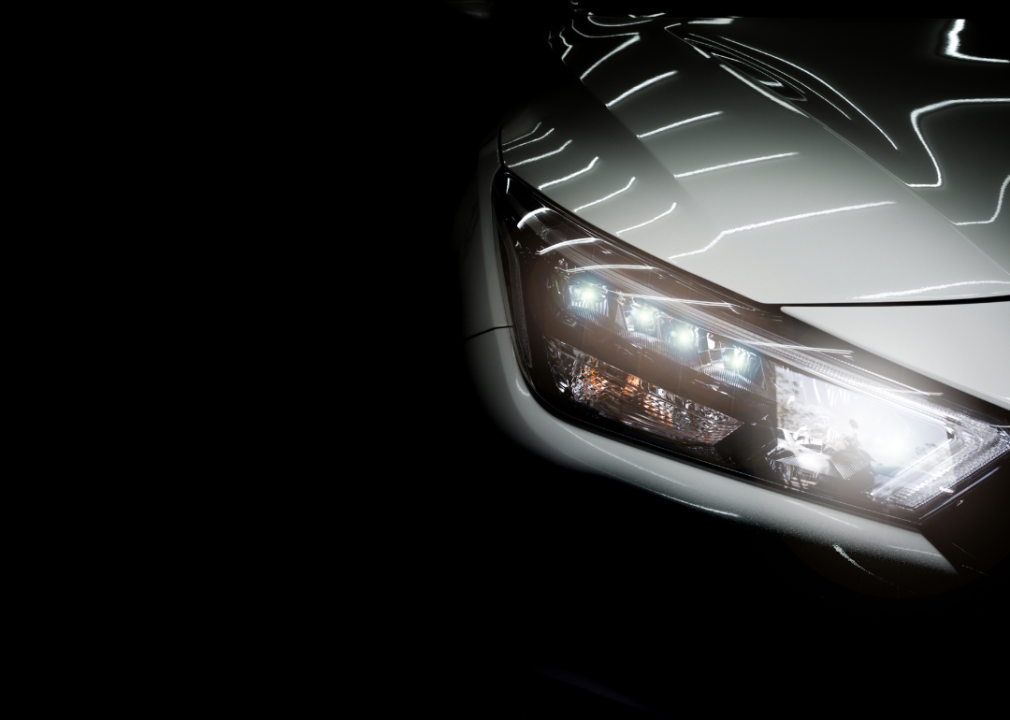
Canva
The top luxury car brands of 2023
Close-up of a luxury sedan’s headlights against a black background
Do you want to know what the top luxury car brands are for 2023? Well, the line between a luxury car and a mainstream car is blurrier today than ever. And whether you’re shopping for a more comfortable, relaxing car with a heightened sense of luxury, or just a more mainstream car with a nicer interior and ride quality, choices abound. Edmunds breaks down this year’s top luxury vehicle brands.
As mainstream brands like Ford, Mazda, and Volkswagen load their lineups with features and upgraded materials, luxury brands like Mercedes-Benz and Lexus increasingly distill their traditional quality and aesthetics into smaller, more affordable packages.
As mainstream and luxury brands start to overlap, the price gap also narrows. Edmunds data found that the disparity between average mainstream and luxury vehicle prices shrank about 10% between the mid-2000s and mid-2010s. And while the current average transaction prices between luxury and non-luxury brands remain distant — $78K for the former, $43K for the latter — automakers in both categories are clearly looking for new buyers. So with regular brands pushing up and traditional luxury brands pushing down, what distinguishes the two?
What the top luxury car brands offer
When most people think of luxury cars, they probably think of fine leather seats, soft, pillowy rides, and ample room to stretch out. But these qualities are increasingly available in cars ranging from Honda Accords to Ford F-150 pickups. Today’s top luxury cars stand out by taking things to another level. Full-grain and embossed leathers, specialty wood and metal trims, and panels — dash, doors, headliner — wrapped in suede-like or microfiber materials typically remain the reserve of luxury brands.
You’ll often find more tech, such as video-enhanced navigation, and advanced safety and driver assist features, including hands-free driving systems. Luxury cars tend to favor cushy rides, with upgraded tires and suspensions. Additional layers of sound insulation make cabins quieter, and conversations easier. Premium audio systems, often with 15 or more speakers, are another common luxury indulgence.
Luxury cars are also typically built as stand-alone models that don’t share any major hardware with a less expensive car from a mainstream brand. But there are exceptions. Ford, Toyota, and Volkswagen are popular automakers that base their high-end luxury brand products on common platforms. The Lincoln Navigator SUV, for example, is related to the Ford Expedition. Though some auto purists insist true luxury cars should have unique foundations, these brands have found other ways to make their high-end cars stand out.
Another aspect associated with many luxury brands is a heightened level of dealer service, which can include courtesy loaner cars, waiting areas that resemble high-end hotel lobbies, and concierge-type services that handle the details of service appointments and repairs.
Finally, the most intangible trait of a luxury car is cachet. Features, trim, and technology alone don’t transform a car into a luxury product. Many luxury carmakers have a long history — racing and motorsports mastery is a common thread — and a hard-won reputation for consistent excellence. With these principles in mind, these are the best luxury car brands for 2023.
![]()
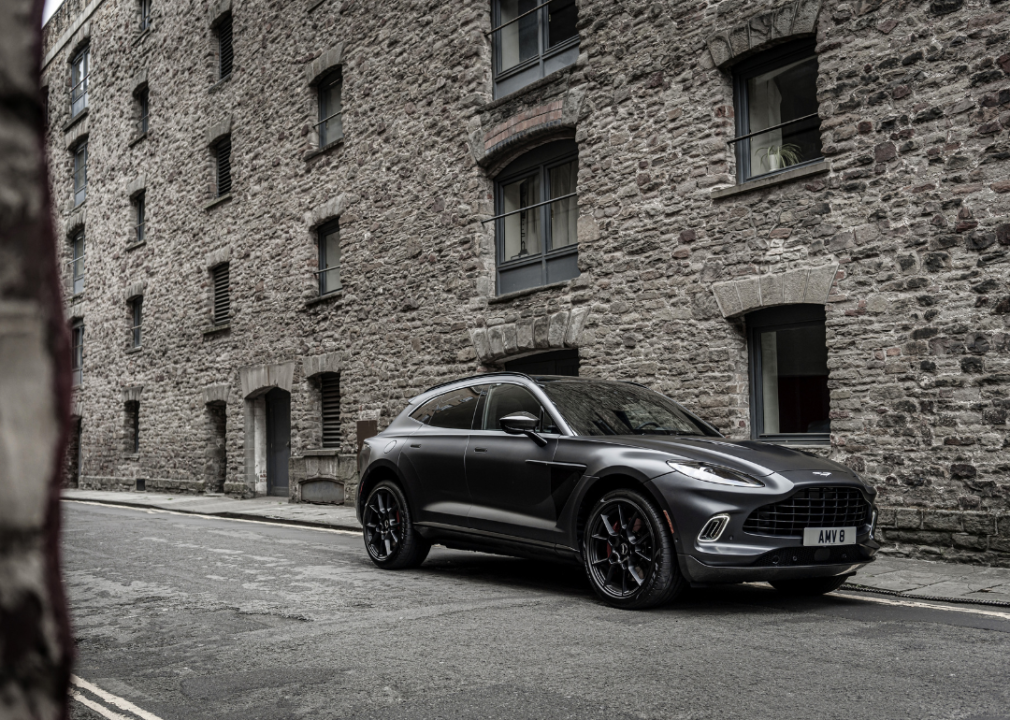
Jack Skeens / Shutterstock
Aston Martin
Aston Martin DBX
James Bond driving a Mini just wouldn’t be the same, would it? While Aston certainly owes some of its cultural relevance to 007, the brand’s long history and elegant designs — among the most lust-worthy outside of Italy — are the larger share of its success. Big, powerful engines and cabins built for long-distance comfort cement Aston’s place as a top luxury brand. The DBX is the brand’s first SUV.
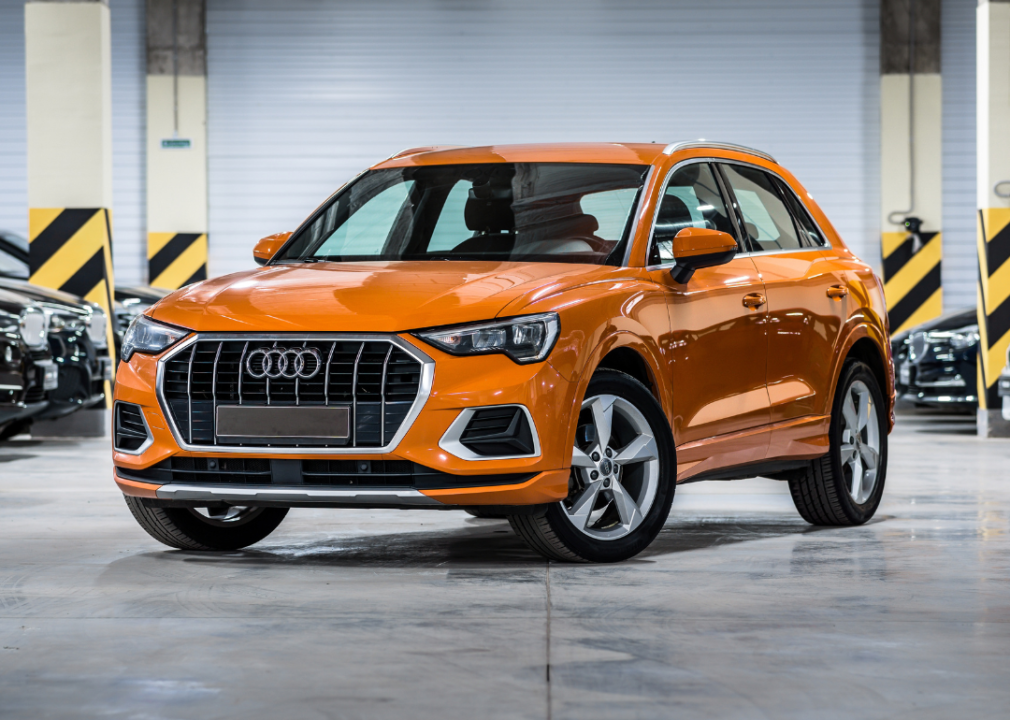
rebinworkshop / Shutterstock
Audi
Audi Q3 35 TFSI II F3 front view, three quarters view, headlight off
Audi’s full-spectrum lineup of cars and SUVs ranges from the compact A4 sedan and Q3 SUV to the Lamborghini-based R8 sports car. All share Audi’s sporty handling, sleek interior design, and top-grade materials. The automaker’s 100-year history and motorsports success lend the four rings on its front grille an enviable cachet.
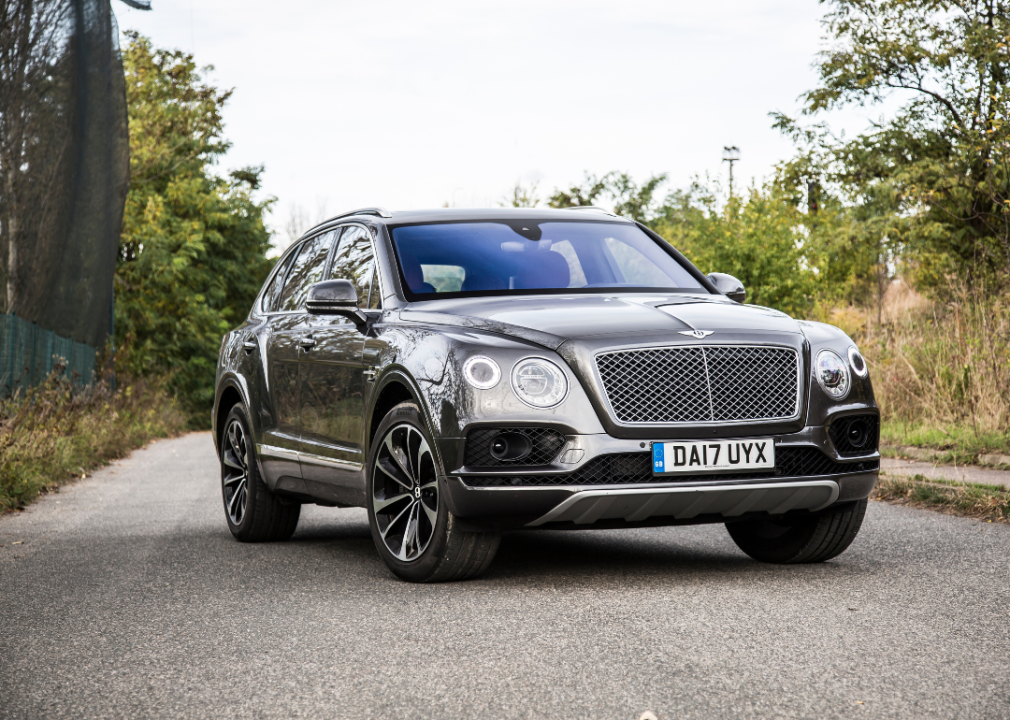
MM.f / Shutterstock
Bentley
Bentley Bentayga
One of the most storied luxury brands, Bentley traces its roots back more than 100 years, from open-top racers to opulent, expensive luxury cruisers like the Mulsanne. Today the brand’s slimmed-down portfolio includes the sporty Continental, stately Flying Spur, and Bentayga SUV. Though its vehicles are typically slightly less expensive than those from rival Rolls-Royce, Bentley offers nearly unparalleled luxury appointments and customization potential.
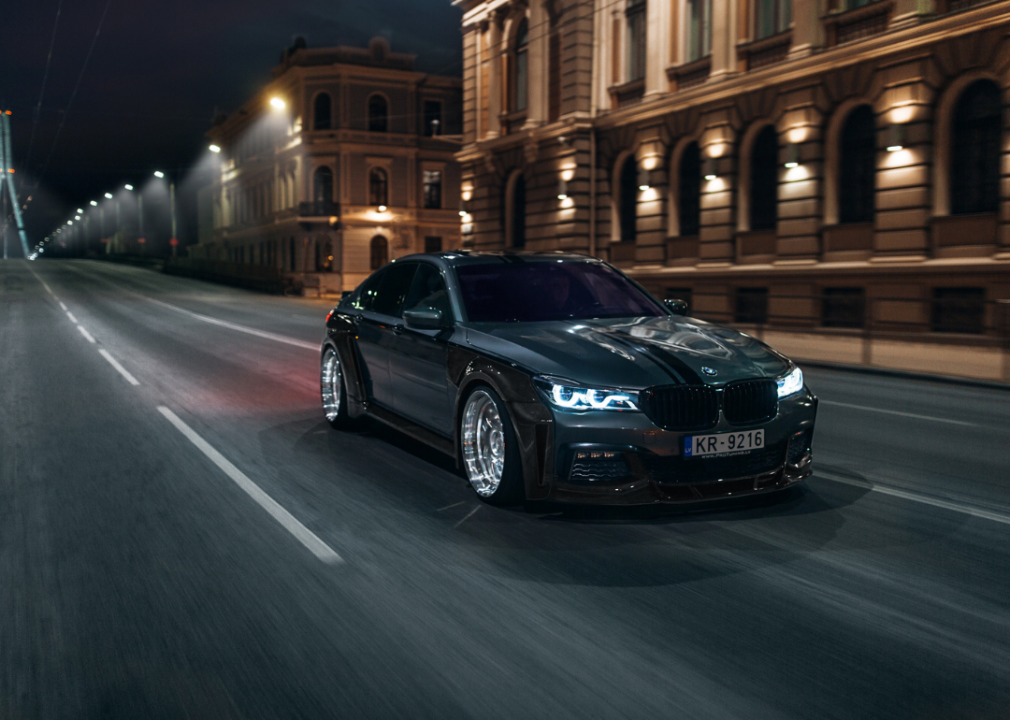
BoJack / Shutterstock
BMW
BMW 7 series G11 with carbon widebody kit drive fast at the night city
BMW, like its Audi and Mercedes rivals, has a long legacy that includes a laudable motorsports pedigree. Today its expansive portfolio includes compact sprinters like the 2 Series and large luxury shuttles like the 7 Series sedan and X7 SUV. Its ability to combine luxury interiors, athletic handling, and the latest in technology features makes it a benchmark for other automakers.
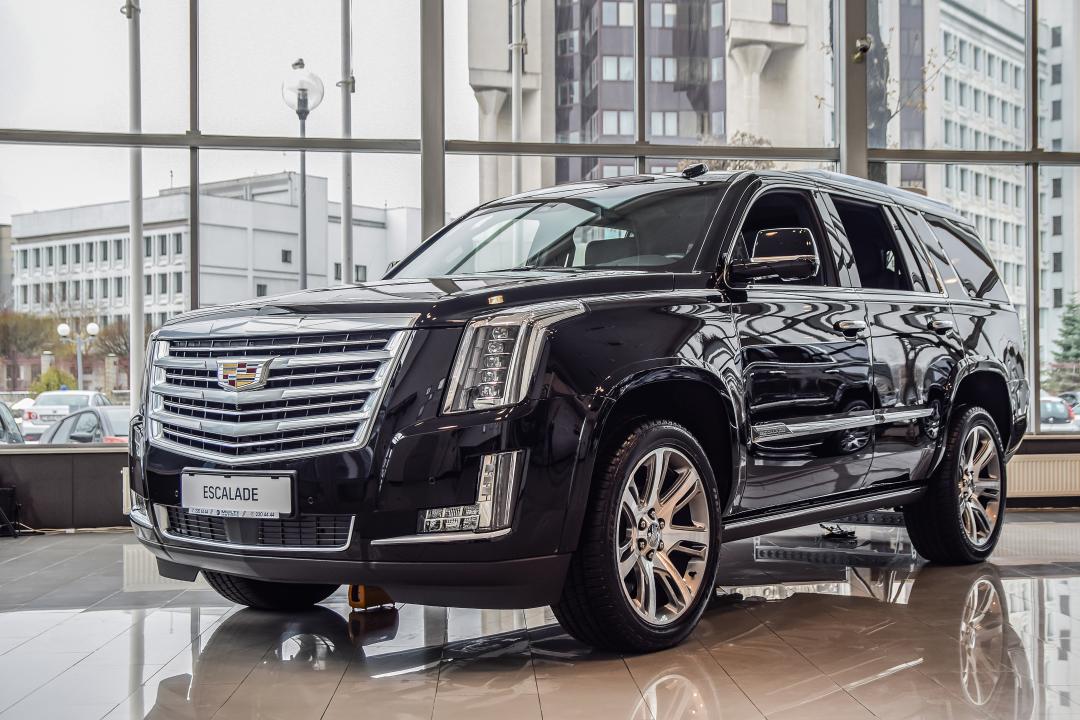
Yauhen_D / Shutterstock
Cadillac
Cadillac Escalade in the dealer’s showroom.
With long, sleek coupes and jet-age-inspired designs, Cadillac was once the luxury gold standard in American cars, even slightly more coveted than its Lincoln rival. Cadillac lost its swagger near the end of the century but regained it with the launch of the Escalade SUV in 1999, later adding performance sedans and coupes to its lineup. Today, the Escalade remains a rolling luxury cocoon, with handsome, striking design and sophisticated tech.
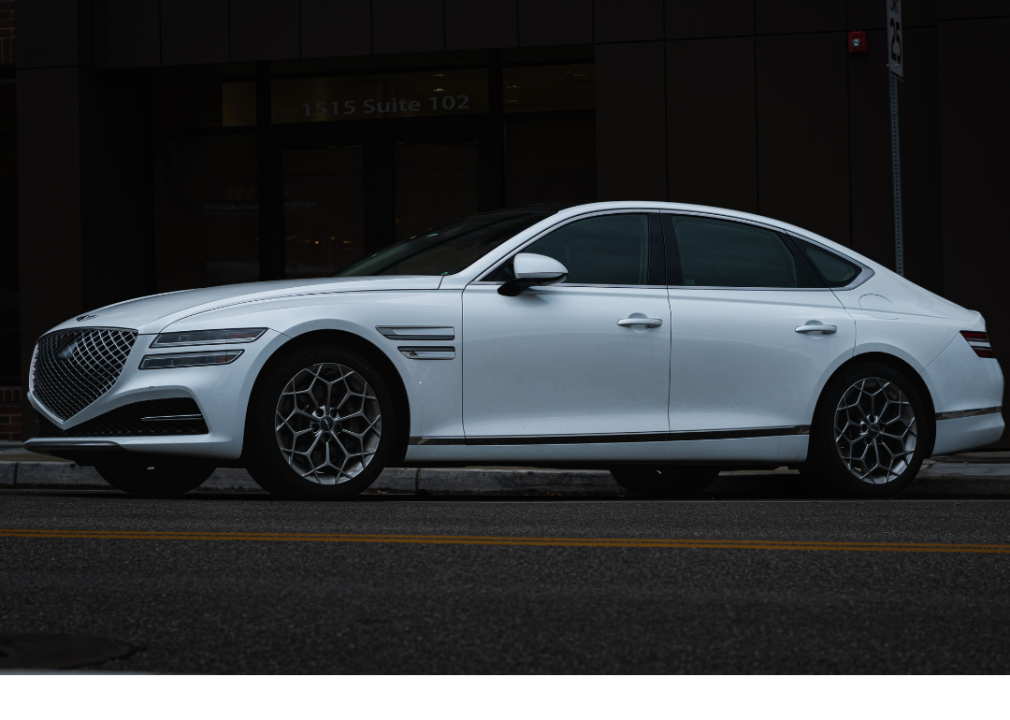
Wirestock Creators / Shutterstock
Genesis
A closeup of a white 2021 Genesis G80 with a dark background
Newbie Genesis has quickly established itself as a legitimate luxury alternative to rivals like Cadillac, Lexus, and BMW. Genesis spun off from Hyundai in 2020, and while easy to dismiss as dressed-up Hyundais, Genesis models like the G80 share nothing with Hyundai models and offer loads of luxury features, lush interiors, ample power, and classy, Bentley-esque styling.
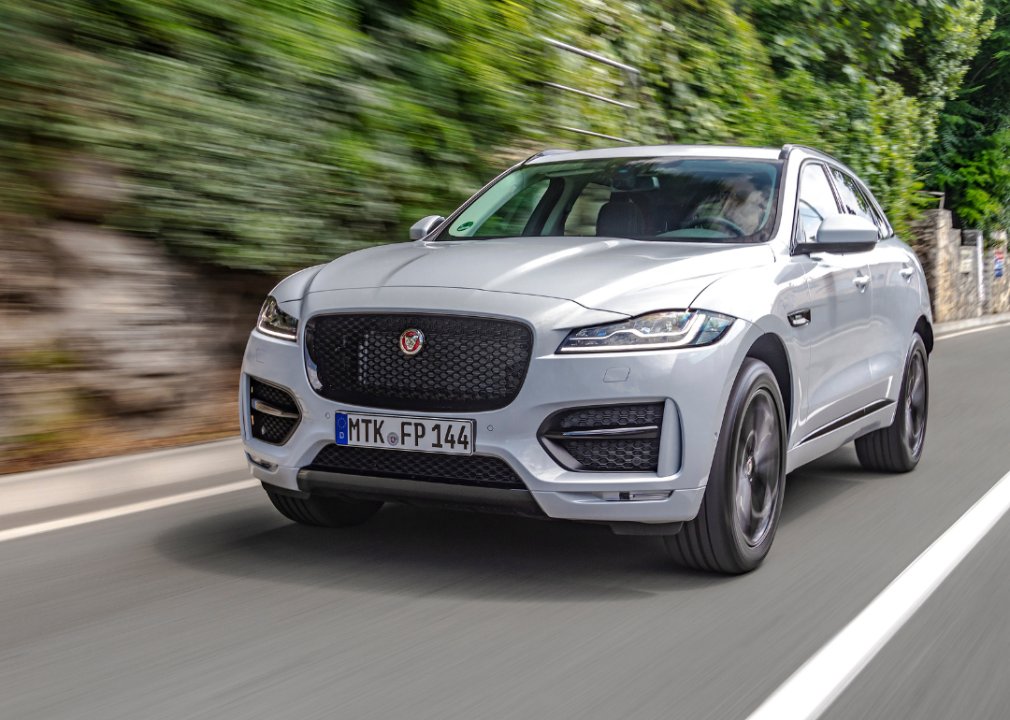
supergenijalac / Shutterstock
Jaguar
A man is driving new Jaguar F-Pace fast on a country road
Another classic English brand, Jaguar, like Aston Martin, excels at graceful, curvy sheet metal with plenty of power underneath and plenty of decadence inside. The F-Type sports car and F-Pace SUV are some of today’s most stylish models and are available with a sonorous V8 engine. Now owned by Tata, an Indian conglomerate, Jaguar offers two SUVs and the I-Pace EV.
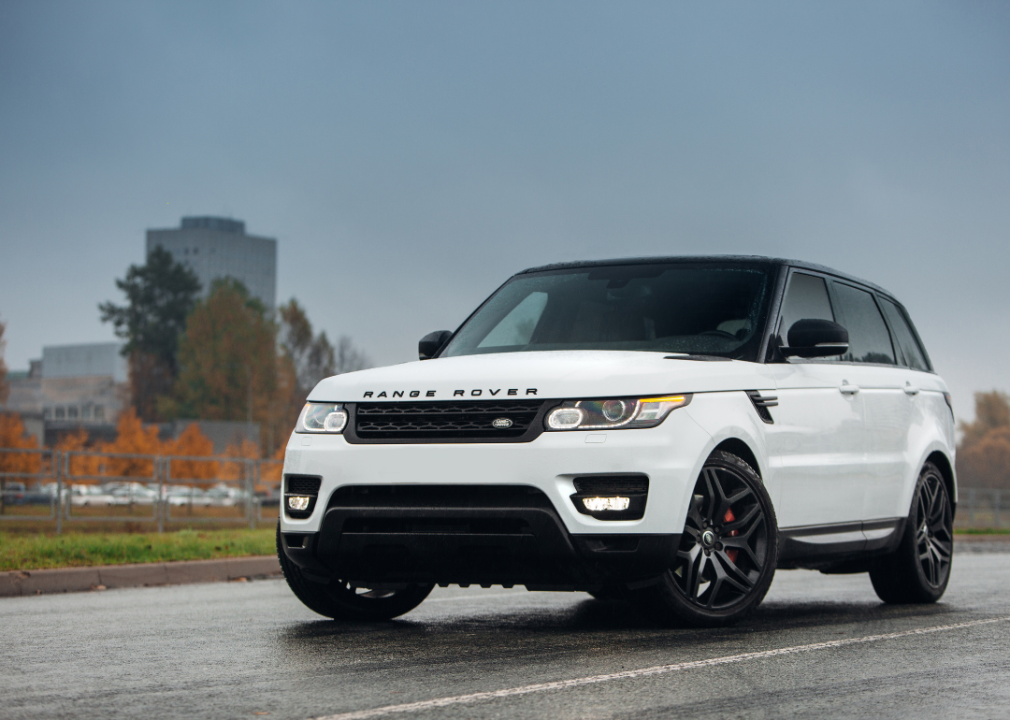
BoJack / Shutterstock
Land Rover
Range Rover Sport HSE at the city street
One of the original and most iconic SUVs, the Land Rover Range Rover embodies old-school English luxury adventure. The original models were pretty utilitarian, but today’s Range Rover and assorted other Rover models — Defender, Evoque, Discovery — are seen more often in valet lines than forest roads. But a certain subset of owners still prize Rovers for their advanced four-wheel-drive systems, luxury-trimmed interiors, and stylish design.
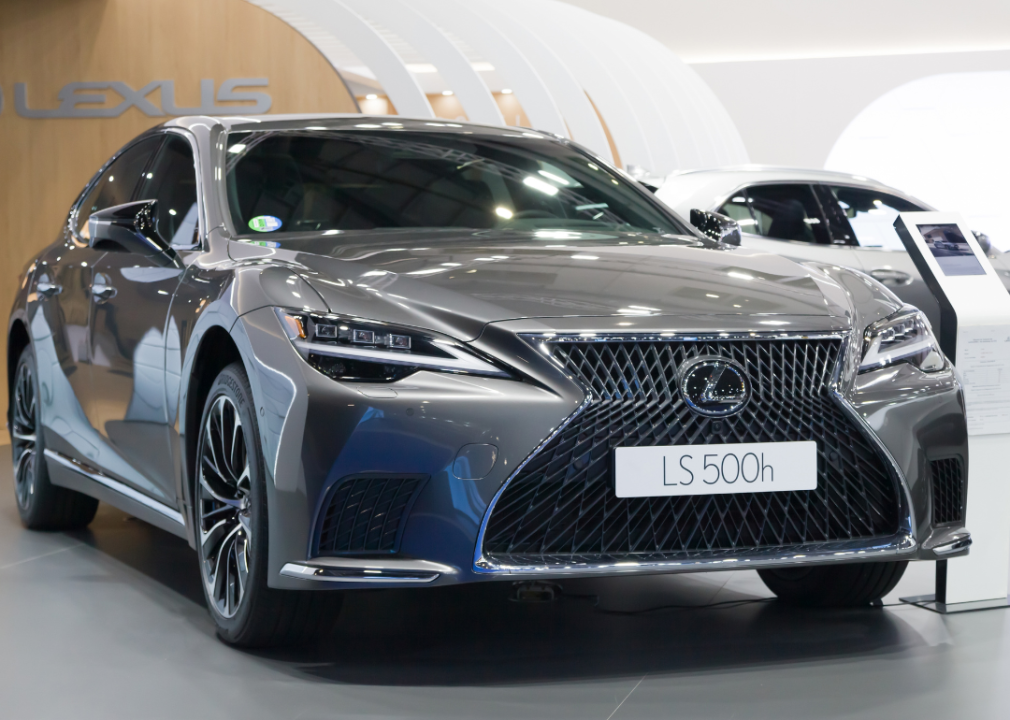
Santi Rodriguez / Shutterstock
Lexus
Lexus LS 500h on display at Automobile Barcelona 2023 in Barcelona, Spain.
It’s hard to overstate how Lexus reinvented automotive luxury with the debut of its LS 400 sedan in 1989. Seemingly overnight, many Cadillac, Lincoln, BMW, and Mercedes owners became Lexus owners thanks to the new car’s smooth ride, rich interior, and attractive price. Unparalleled dealer service, especially in the face of some early miscues, also helped Lexus establish a foothold. With long-term reliability baked in from parent company Toyota, Lexus remains a benchmark of comfort, refinement, and painstaking detail, as seen in today’s LS sedan.
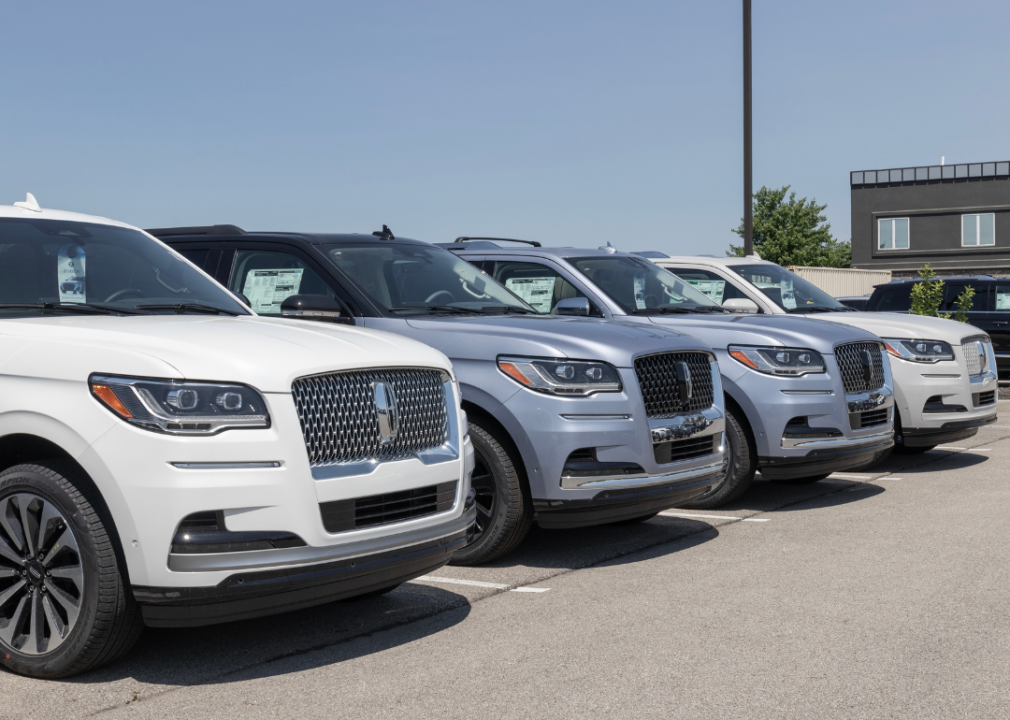
Jonathan Weiss / Shutterstock
Lincoln
Lincoln Navigator SUVs on display at a dealership.
Along with Cadillac, Lincoln was the premier midcentury American luxury brand. Its long, stylish Continental, with rearward-opening doors, remains an iconic design. Like Cadillac, Lincoln suffered dark spells near the end of the century, but it regained its mojo with the Navigator, launched just before the Escalade. Today’s Navigator is one of the best luxury SUVs around, and it’s complemented by the smaller Nautilus, Aviator, and Corsair, all with lush interiors, advanced infotainment, and loads of turbocharged power and towing capacity.
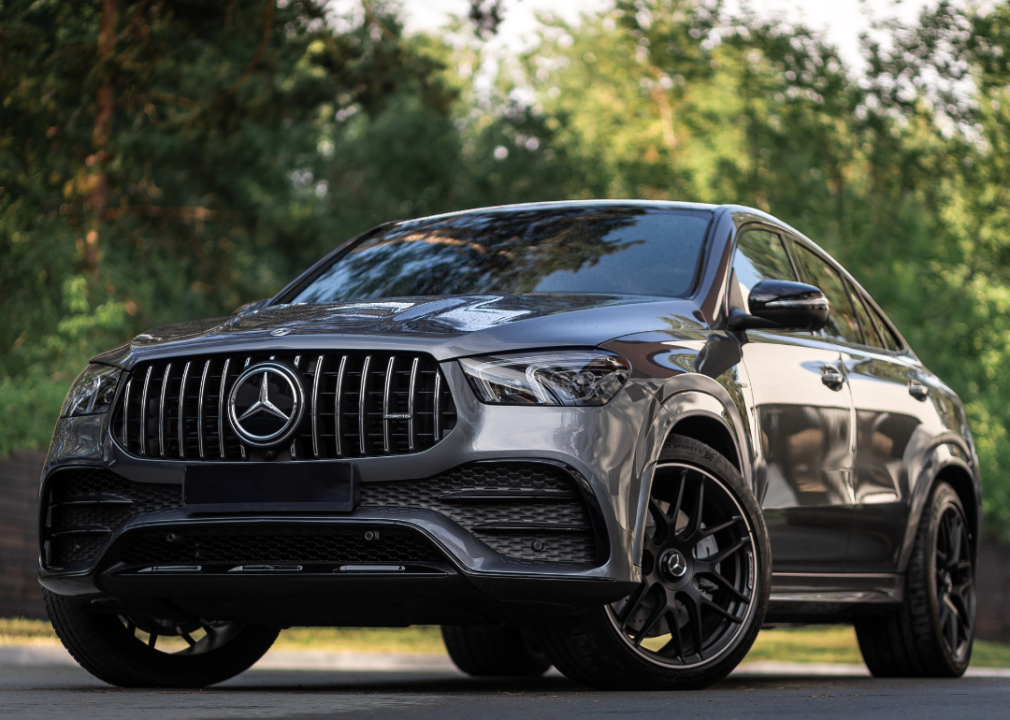
Everyonephoto Studio / Shutterstock
Mercedes-Benz
A silver Mercedes-Benz GLE Coupe AMG 53 4Matic+ 2023 parked on the forest on a warm summer day
When many car buyers think of luxury, it’s likely that Mercedes-Benz immediately springs to mind. Mercedes luxury comes in all shapes and sizes, from sedans to SUVs and specialty editions, all well-known for meticulous engineering, timeless elegance, and consistent refinement. Benz has also been a quiet leader in advanced driver assist systems, often debuting technology on top models like the S-Class sedan before filtering it down to its more affordable offerings. Mercedes is also expanding its lineup of EVs more than most other luxury automakers.
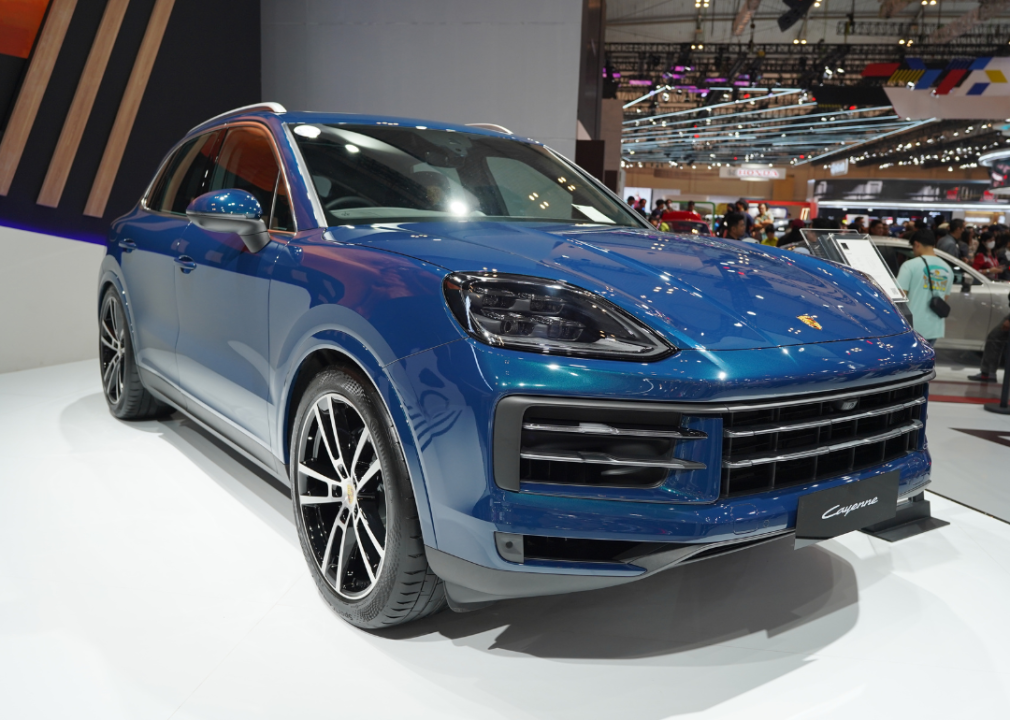
haryanta.p / Shutterstock
Porsche
The new Porsche Cayenne is on display at the 2023 Gaikindo Indonesia International Auto Show (GIIAS).
Best known as a performance brand, Porsche nonetheless infuses its cars with supple, high-quality leather, shapely seats, and surprisingly smooth ride quality given its taut and responsive suspensions. The SUV lineup, led by the Cayenne, combines a fair amount of practicality along with high-performance driving. Porsche is also getting into EVs, starting with its Taycan sedan. Any Porsche can be customized to a high degree with special trims, colors, wheels, and technology features.
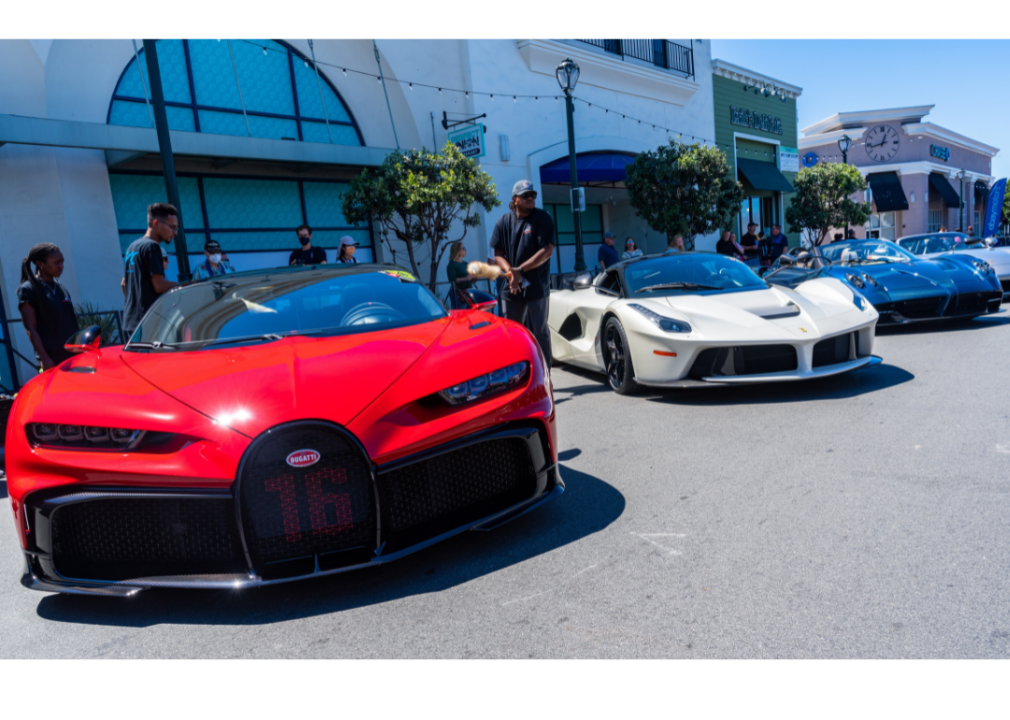
luckyluke007 / Shutterstock
Honorable mentions
Bugatti, Ferrari, Pagani at 2022 Monterey Car Week, Monterey, CA, on August 20, 2022
The following brands also make fine vehicles, but don’t quite always have the same impact or luxury focus as the brands above.
Acura is Honda’s luxury division and shares platforms with most of Honda’s cornerstone models. Getting a lot of features for your money is a big part of the brand’s appeal, as seen in its TLX sedan.
Alfa Romeo is an Italian brand with plenty of history but only recently relaunched in the U.S. Style and sportiness are highlights of its vehicles, such as the Giulia sedan.
Bugatti is a storied and exotic brand, but with a $2 million entry point, it’s unobtanium for most buyers.
Ferrari’s cars certainly don’t lack sumptuous interiors, especially in tan leather, but the brand is foremost about performance. Founder Enzo Ferrari would likely scoff at the notion of his cars as luxury offerings.
GMC trucks and SUVs have upscale interiors and plenty of capability. But the reality is that there’s not much differentiation between a GMC Sierra and a Chevrolet Silverado.
Infiniti models generally offer sharp style and value, as put forth by the QX60. But their interiors and technology aren’t significant upgrades over what you get in mainstream cars.
Lamborghini: See Ferrari.
Maserati has an enduring if spotty history. Its designs are classically Italian — see the Ghibli sedan — but some of the technology features are a bit behind the times.
McLaren makes some of the most thoroughbred performance cars. Its newest 750S is among the world’s best. But driver and passenger comfort isn’t a foremost McLaren concern.
Rolls-Royce may be the ultimate luxury car brand, synonymous with posh elegance and maximum cachet. What else can match a Phantom? The brand isn’t as pricey as Bugatti but it’s farther out of reach than Bentley — Rolls is reserved for a fortunate few.
Volvo makes a case as a luxury brand, with slick, distinct designs and plush interiors. Many also offer plug-in hybrid powertrains, such as the XC60 SUV. But the brand’s cars as a whole lack the polish and cachet of its German rivals.
What about EVs?
While many electric vehicles are priced like luxury cars, few act like it. Sit and ride in most EVs and you quickly realize that the lofty prices go back into recouping battery and development costs, and not toward refinement. Lucid is a legitimate contender to Tesla’s dominance, and its Air sedan delivers stupefying acceleration. But dull cabin design and materials and average ride quality prove this brand still has work ahead. Polestar, a Volvo spinoff, has a promising future, blending the best of Volvo design with EV performance. Rivian boasts impressive performance and even towing capability, but comfort isn’t a top priority. Tesla rightly deserves credit for excellent charging infrastructure and raising EVs to a level of mass acceptance, but it remains dogged by fit, finish, and assembly issues that most other automakers figured out long ago.
This story was produced by Edmunds and reviewed and distributed by Stacker Media.